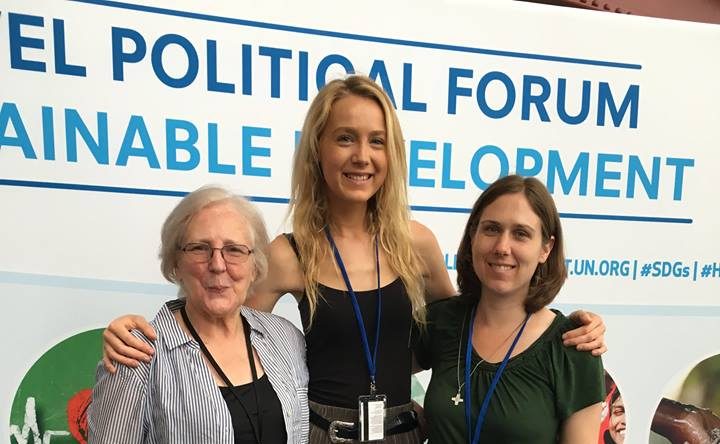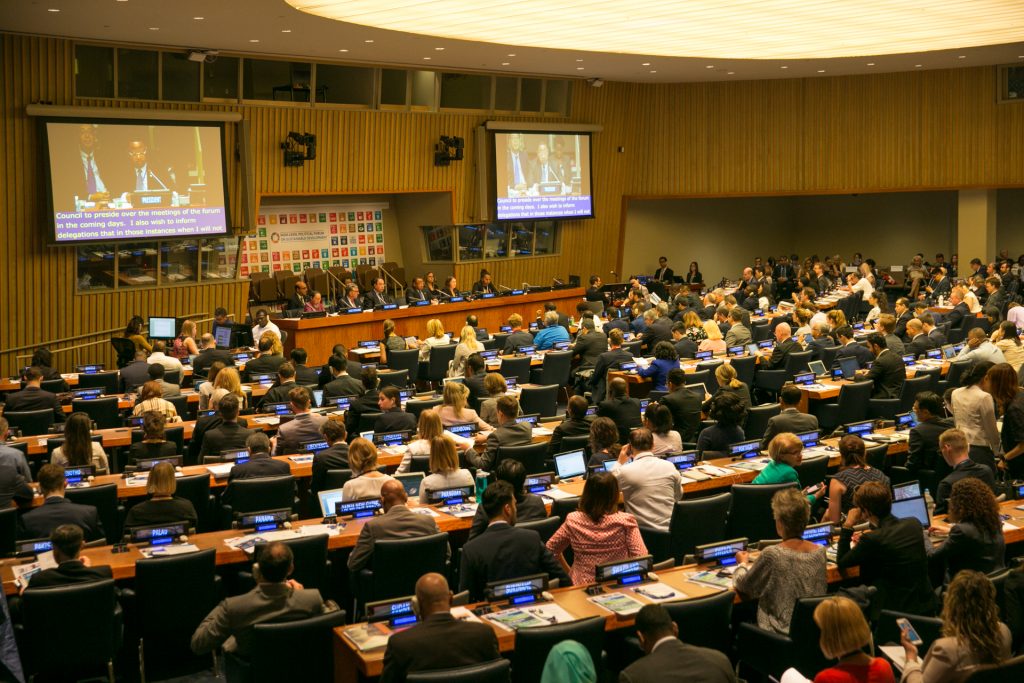
When you think of the United Nations, it is hard to conjure up a mental image of what exactly what goes on within those stone walls of the statuesque building on 1st avenue. No matter how much research I did on the 2030 Agenda on Sustainable Development, no matter how many YouTube videos I watched on the internal happenings of the United Nations, nothing could have prepared me for the first week of my internship there.
My name is Agnes O’Dwyer, and I am Australian student interning for the IBVM NGO associated with the United Nations. This means that for the summer, I am granted access to many of the conferences and events held in and around the UN, as well as an opportunity to voice my own insights within interactive panels and meet with extremely influential people.
What an Opportunity-Sometimes I need to pinch myself!
It seemed the 13-hour flight from Sydney to New York allowed for my imagination to run a little wild with what to expect from this internship. I anxiously convinced myself I wasn’t qualified or esteemed enough to even be within the confines of the UN Building. But as soon as I touched down at Newark airport, I was practically thrown into one of the most hectic events held at the United Nations: The High Level Political Forum.
Although the name is less than catchy, the HLPF has been a whirlwind week and a half of passionate speakers from around the world, sharing eye opening stories of how their nation is achieving the Sustainable Development Goals, as well as where their country is in need of help or improvement.
My role was to attend these fascinating conferences and side events, take notes, photos or videos and relay important points back to the IBVM team. I then took on extra communications work with the Major Groups and other Stakeholders sect of the HLPF, as this functioned as the platform for all NGOs into the United Nations system. I posted important points from each day’s proceedings on behalf of these major groups to enhance awareness. Important points varied from statistical data, innovative ideas, calls to action from civil society, empowering and hopeful quotes and reviews of progress.
The key takeaways from the HLPF were that the nations that integrated the SDGs into their policies were the nations that were progressing the most in gender equality, education and poverty elimination.

Moreover, the countries that encouraged the participation and input from youths in the creation and implementation of these policies were more likely to have a diverse, all inclusive plan of action that reaches the vulnerable groups in society.
A trending topic in this year’s HLPF was the necessity for measurable, quantifiable data from states as well as NGOs. It seems that many groups are being left behind, purely because they are not counted in the data, or that the system of measurement is not sufficient. This year marked a strong movement beyond just measuring income as an indicator of poverty. Instead, there is a drive towards a Multidimensional Poverty Index (MPI), which takes education, social inclusion, public health and much more as other modes measuring wealth or deprivation.
There has since been a big push towards the training and capacity building of young people in the field of data collection and analysis.
Education has, and always will be, a top priority world wide, but is often overlooked by those who have grown up in a society where it is an expectation that one completes high school at the very least. I realised during these extensive 2 weeks just how privileged I have been in my development.
I was educated within a Loreto Institution which taught me my rights as a woman, and about the work the United Nations have been doing over the decades to achieve world peace. This positive influence is vital to the perpetuation of the SDGs.
Being able to see how developing countries are struggling with issues of education, gender equality and poverty has been truly inspiring, and provides global hope that by 2030, the world will be a prosperous place to live.
Author: Agnes O’Dwyer


